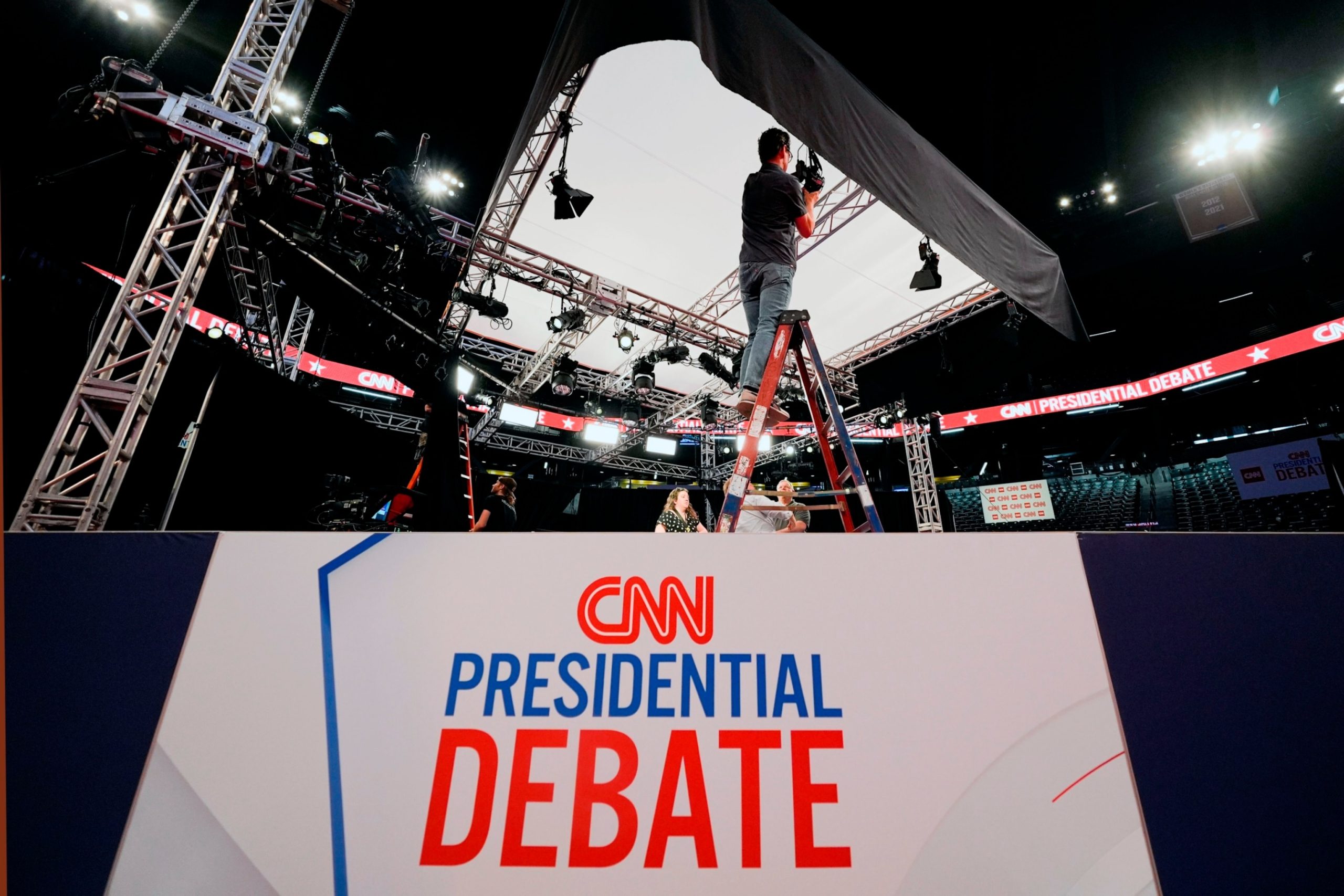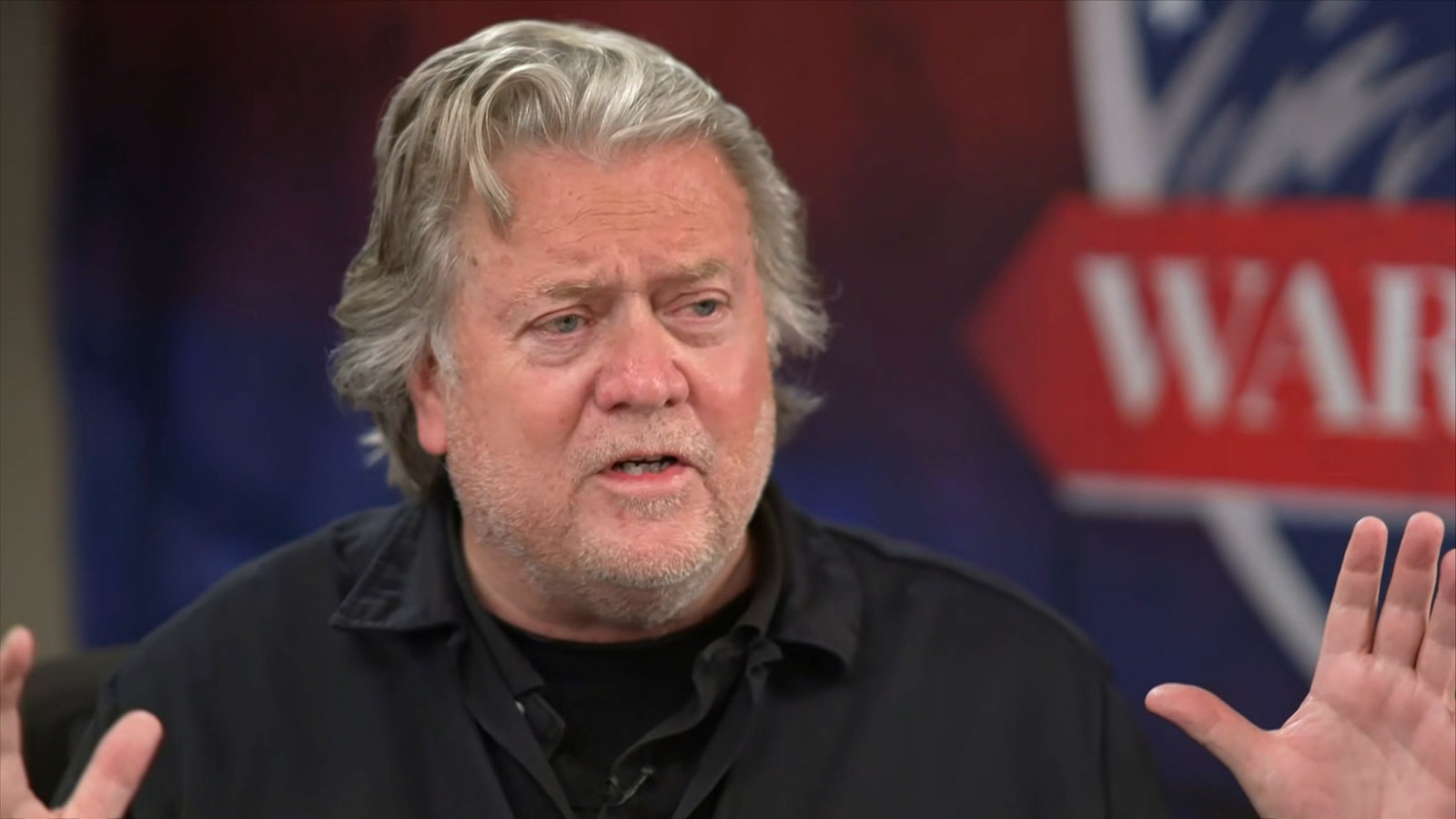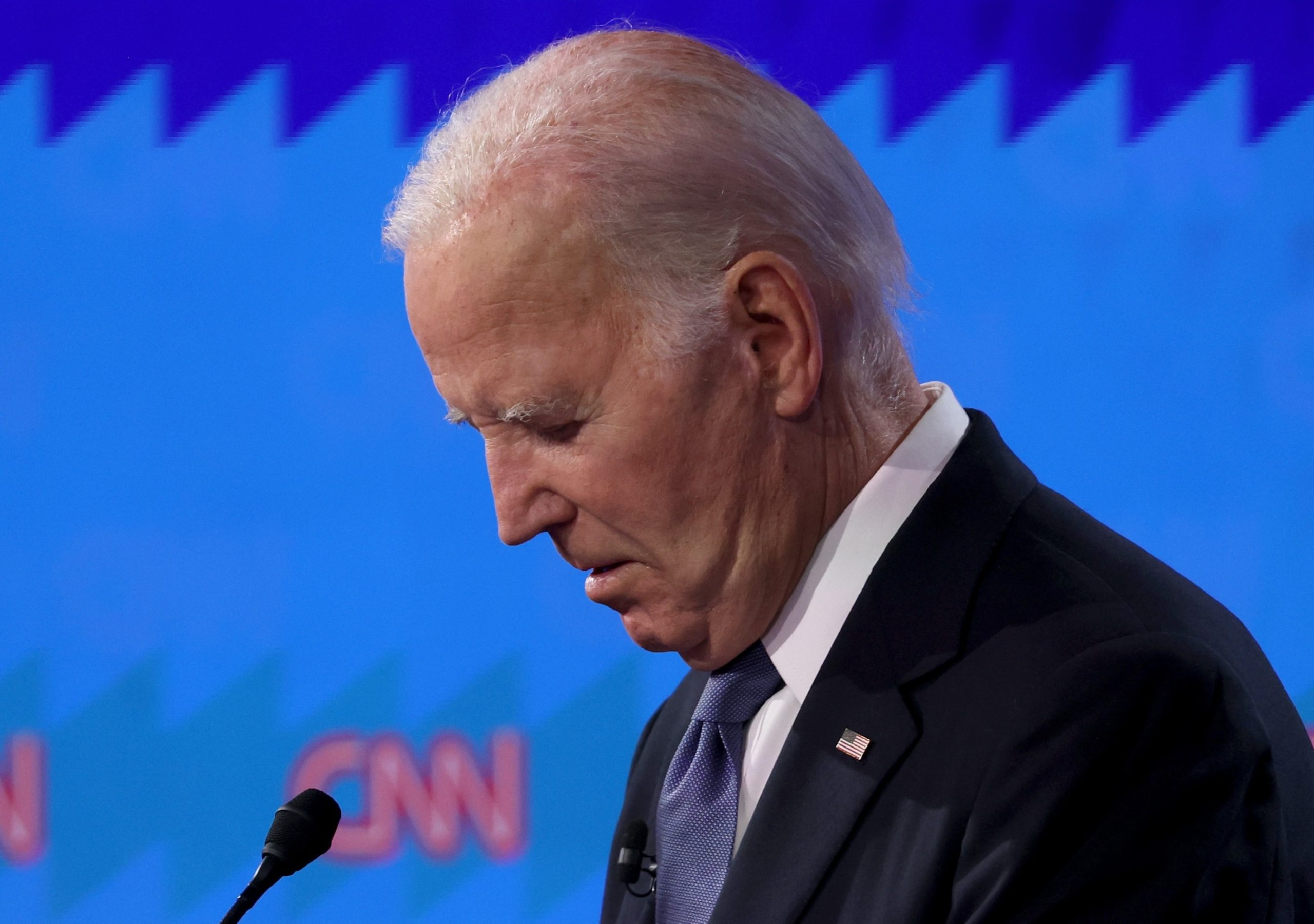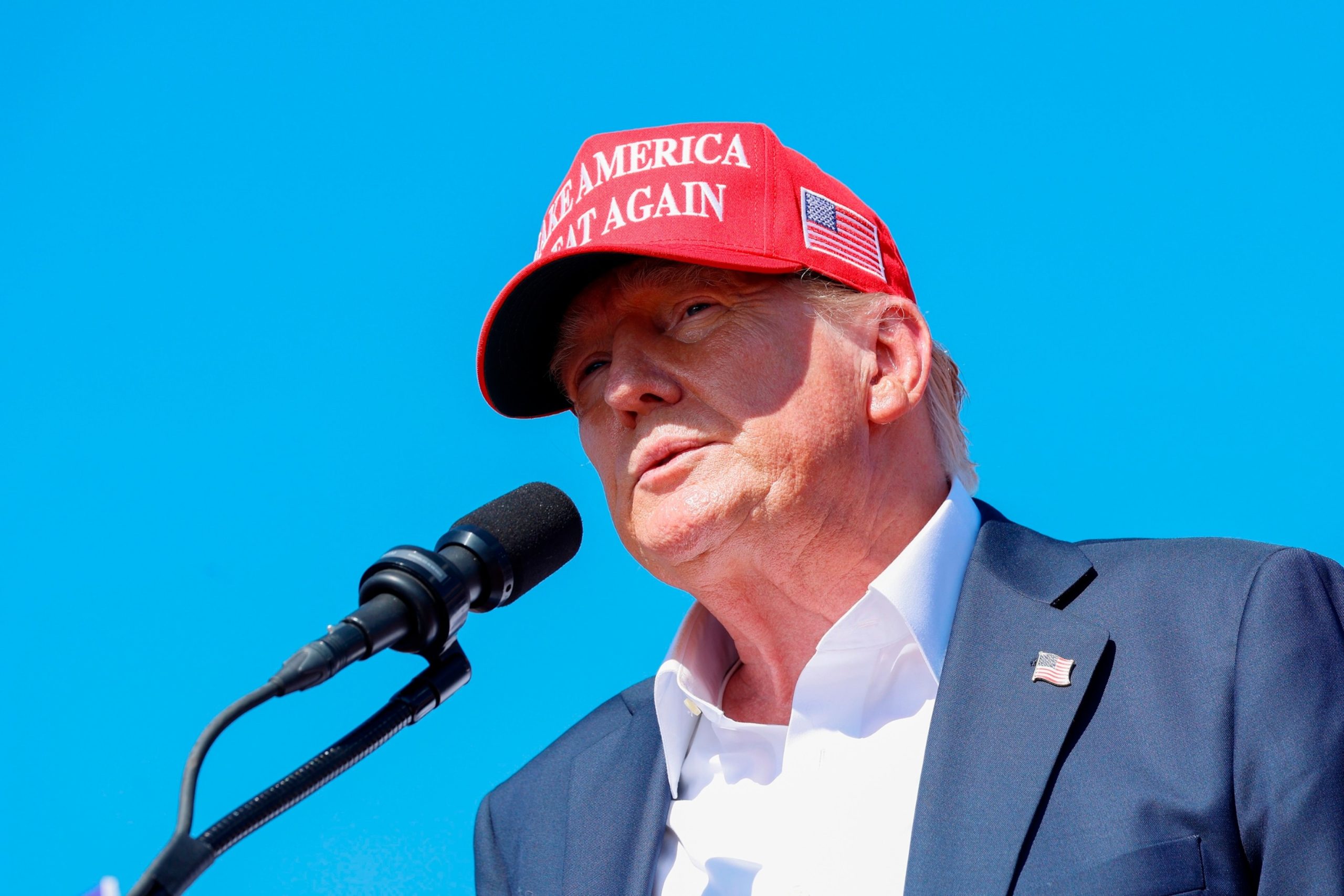The first presidential debate of the 2024 election will be the first ever to feature two former presidents, but that isn’t the only thing that makes it unprecedented: It’s also the earliest general election debate ever.
When President Joe Biden and former President Donald Trump take the stage at the CNN-hosted contest on Thursday — it will be 131 days ahead of the Nov. 5 Election Day — months ahead of the usual fall timeline.
Since 1960, Debates have been sanctioned — and scheduled — by the nonpartisan Commission on Presidential Debates, with the previous earliest one taking place when Ronald Reagan faced off against Independent candidate John Anderson during the 1980 election cycle. That occurred on Sept. 21, 44 days ahead of that year’s general election.
Since 1976, the average length of time between the first general election debate and election date has been about 35 days, according to CPD records. The shortest interval was in 1992, when there were only 23 days between a debate an Election Day — when Democrat Bill Clinton debated Republican George H. W. Bush.
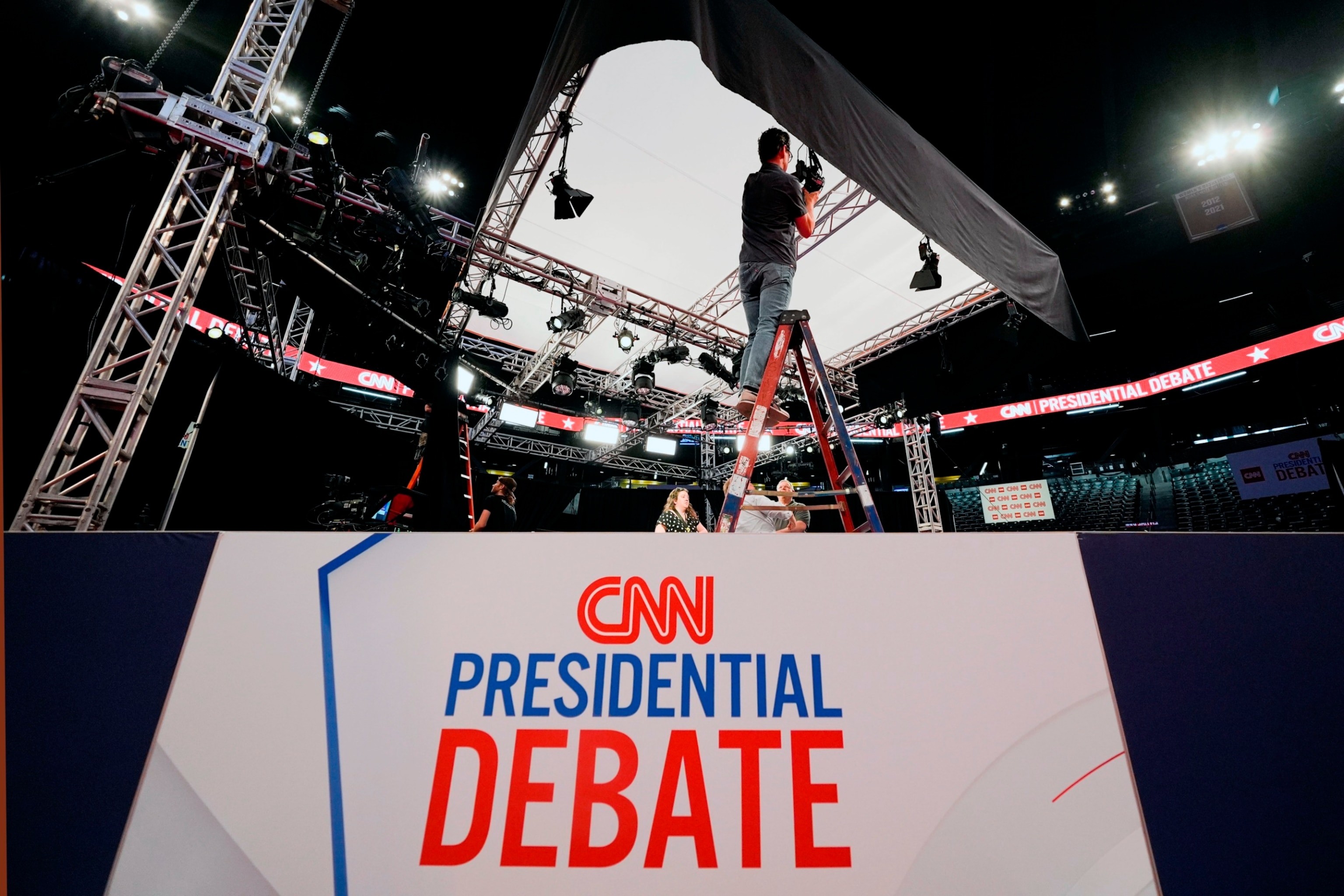
Ben Starett, lighting programmer for CNN, sets up lights in the spin room for the presidential debate between President Joe Biden and Republican presidential candidate former President Donald Trump in Atlanta, June 26, 2024.
Gerald Herbert/AP
Biden and Trump will have about three extra months on the campaign trail following their first public faceoff — and experts ABC News spoke with said the early timing could have a significant impact on the race.
“The combination of having so many people with doubts about both candidates, coupled with the first debate occurring before either convention, heightens its potential importance,” said Republican political strategist Whit Ayres. “I don’t know that it will be actually important. But it certainly heightens the potential for importance.”
But Mitchell McKinney, a professor at the University of Akron and noted political communication scholar, took a different view, predicting that this early debate may not matter as much.
First, he said, at this stage in the cycle, voters aren’t as tuned in as they would be in early fall, when the debates are usually held.
“Our most recent general election presidential debates, which typically occur in late September into October, have continued to be big draws, as in 75 to 80 million” viewers, said McKinney. This time around, he continued, “It could be half that.”
The New York Times has reported that TV industry observers expect the debate to draw between 30 and 70 million viewers. For comparison, the first debate between Hillary Clinton and Donald Trump — in September 2016 — topped 84 million viewers, according to Nielsen ratings.
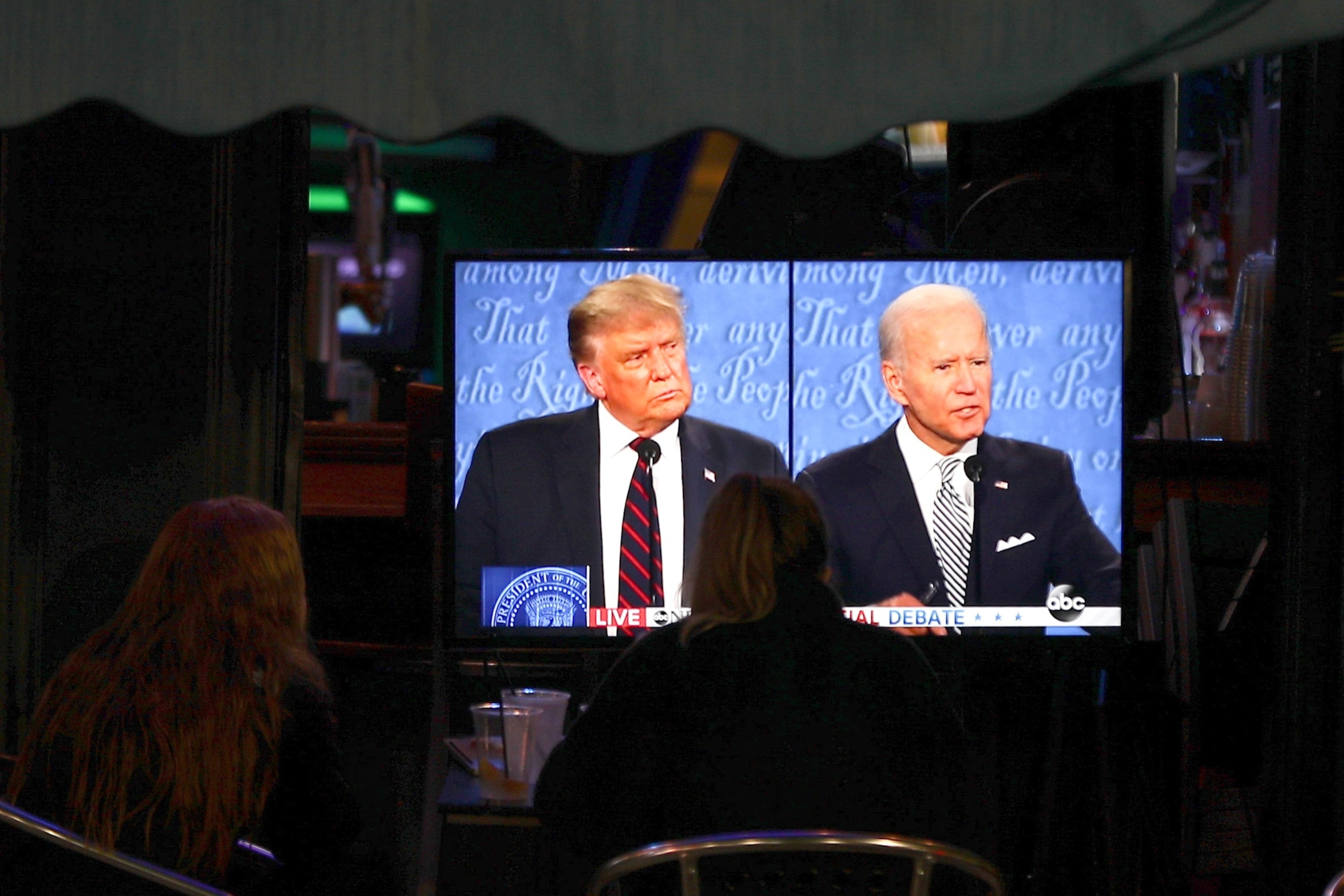
In this Sept. 29, 2020 file photo people watch the first presidential debate between President Donald J. Trump and Former Vice President Joe Biden, on in Hoboken, N.J.
Tayfun Coskun/Anadolu Agency via Getty Images, FILE
Second, regardless of whether CNN’s debate exceeds ratings expectations Thursday night, the extra months between the first debate and election debate allow the candidates time to recover from a poor performance.
“If there is for a candidate — one or both of these candidates — some sort of gaffe or blunder,” McKinney said, “there is plenty of time for other events to take over … the candidate or candidates can recover,” he added.
But with Biden and Trump barreling toward a November rematch that voters are broadly unenthusiastic about, veteran Democratic strategist James Carville told ABC News that any new information about the two presidents on debate stage could make a difference for some key voters.
“People’s attitudes are very fixed and voters tend to be pretty entrenched. The person that ‘wins’ — I don’t know how you determine that — in this debate is going to be the one that provides voters with some new information, something they thought about before,” said Carville, who ran Bill Clinton’s 1992 campaign.
“I guess this seems to be pretty, kind of hard to move a lot of people in this election, but if you move a few, it makes a big difference,” he added.
The decision to move up the timing followed disputes between the campaigns and the Committee on Presidential Debates — partially over scheduling.
Before the Biden and Trump campaigns declared their participation in a non-Commission for Presidential Debates-sanctioned broadcast, the candidates were planning on appearing on stage for the first time together this fall, on Sept. 16.
The Trump campaign urged the commission in May to move up its debate schedule, arguing that early voting would have already begun in some places by the time Trump and Biden debated at that date.
“As it always does, the CPD considered multiple factors in selecting debate dates in order to make them accessible by the American public. These factors include religious and federal holidays, early voting, and the dates on which individual states close their ballots,” the commission wrote in a statement.
The first presidential debate is always a highly anticipated event during an election season, as it provides voters with a chance to see the candidates go head-to-head on important issues facing the country. This year, with the 2020 presidential election quickly approaching, the potential impact of the earliest debate is even more significant.
The first debate, which is scheduled to take place on September 29th, will feature President Donald Trump and former Vice President Joe Biden. Both candidates have been preparing for this crucial event, as it will be their first opportunity to directly address each other and make their case to the American people.
One of the key ways in which the earliest debate could impact the election is by shaping voters’ perceptions of the candidates. Research has shown that debates can have a significant influence on voters’ opinions, as they provide a platform for candidates to showcase their knowledge, policies, and leadership abilities. A strong performance in the debate can help a candidate gain momentum and support, while a weak showing can damage their chances of winning the election.
In addition, the earliest debate could also have an impact on undecided voters. With polls showing a significant number of undecided voters in key swing states, the debate could be a critical moment for these individuals to make up their minds. The candidates will have the opportunity to appeal directly to these voters and persuade them to support their candidacy.
Furthermore, the earliest debate could also set the tone for the rest of the election season. A strong performance by one candidate could energize their supporters and give them a boost in momentum, while a weak showing could lead to doubts and concerns among their base. The debate could also shape the media narrative surrounding the candidates, influencing how they are perceived by the public in the weeks leading up to Election Day.
Overall, the potential impact of the earliest presidential debate on the election is significant. It has the power to shape voters’ perceptions, sway undecided voters, and set the tone for the rest of the campaign. As such, both candidates will be looking to make a strong impression during this crucial event in order to gain an edge in what is sure to be a closely contested election.
